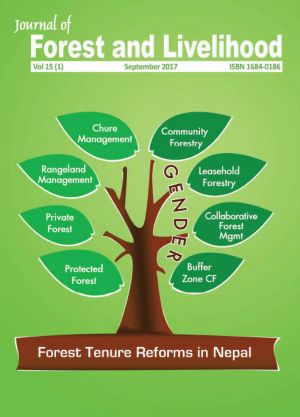Neglected High Altitude Rangelands of Nepal: Need for Reform
DOI:
https://doi.org/10.3126/jfl.v15i1.23093Keywords:
Customary practices, high altitude, indigenous knowledge, pastoralism, transhumanceAbstract
High altitude (HA) rangelands (e.g., grasslands, pastures, and shrublands) are important resources for the livelihoods of transhumance pastoralists. Transhumance pastoralists have developed and used unique institutional practices of using and managing HA rangeland resources that better suit their local context. However, several issues have emerged regarding the use and management of such rangelands. Using secondary information and our own experiences, we analyse the resource tenure situation and the political ecology of the HA rangelands. We found that the current management of these resources is largely neglected from both legal and programmatic point of view. Legal instruments and programmatic interventions have not only failed to recognise historically held indigenous knowledge and long practiced resource conservation, use and management but have also limited the access of pastoralists to the resources, and thereby, inducing conflict among stakeholders. As a result, the livelihoods of the transhumance pastoralists have been threatened and several socio-cultural, economic and ecological consequences have also been experienced. We suggest developing a separate policy and management plan for HA rangeland resources considering the customary rights of transhumance pastoralists, resource conditions and appropriate management practices. We also suggest incorporating such perspectives in revising ongoing community forest and protected areas management.
Downloads
Downloads
Published
How to Cite
Issue
Section
License
CC-BY-NC: This license allows reusers to distribute, remix, adapt, and build upon the material in any medium or format for noncommercial purposes only, and only so long as attribution is given to the creator.





